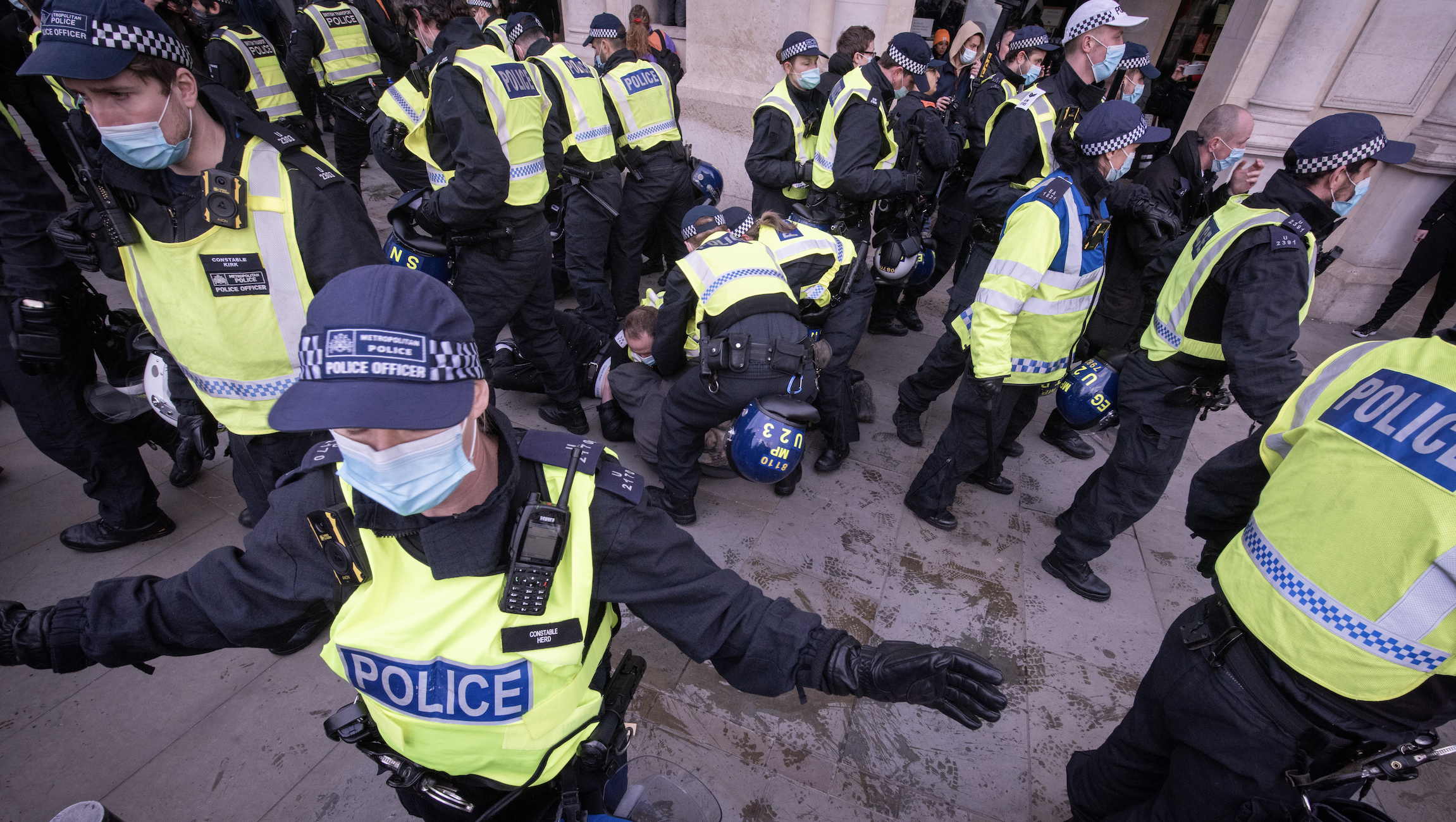Home secretary Suella Braverman acknowledged “serious failures of culture and leadership” and said “further unacceptable cases will come to light” as the force worked to “deliver a wholesale change” in culture.
Your support changes lives. Find out how you can help us help more people by signing up for a subscription
Responding to the report, Nokes said action should come quickly and result in cultural change.
“The scale of the problem is so huge that for the sake of its own reputation the Met needs to act quickly,” the Romsey MP told The Big Issue.
“It takes real effort to bring about cultural change, and first and foremost there has to be a clear message that speaking up about inappropriate behaviours is the right thing to do, that it will be encouraged and fostered.
“We have all been shocked at the extent of the racism, misogyny and homophobia that Dame Louise Casey has highlighted. So now the Met has to act, and work to rebuild the trust that has been lost.
Advertising helps fund Big Issue’s mission to end poverty
She added: “I think they need new policies on whistleblowing – some sort of charter that gives officers confidence to report
“And a change of culture is hard to pinpoint how you do that – but a duty to report incidents of homophobia, misogyny, racism would be a start”.
Former home secretary Priti Patel, speaking in the House of Commons, called for a “performance plan” for the Met to ensure money spent could “demonstrate outcomes and performance changes”.
Sarah Dines, the current minister for safeguarding and parliamentary under secretary of state at the Home Office, said the report laid bare a “shocking toxic culture” in the Met, but said she was confident new commissioner Mark Rowley would “drive forward” the change needed.
Get the latest news and insight into how the Big Issue magazine is made by signing up for the Inside Big Issue newsletter
Harriet Wistrich, the director of the Centre for Women’s Justice, said the report showed “we do not have policing by consent”, and called for the leadership of the Met as well as politicians responsible for the force to be held accountable.
Advertising helps fund Big Issue’s mission to end poverty
She reiterated calls for the Angiolini inquiry, which will examine police failings around the murder of Sarah Everard, to be made statutory.
Peers last year voted down an attempt to give the inquiry these powers, which would have allowed it to compel organisations to hand over documents.
“Whilst the Casey review is fundamentally damning we may still not know the true extent. How can we know whether the Met have been fully open and provided all relevant evidence and where there has not been a process for whistle-blowers to come forward without fear,” Wistrich said.
“The Casey review for all its unstinting critique of the Met will necessarily have gaps in the absence of such powers.”
Meanwhile, Baroness Casey suggested that options such as “dividing up the Met into national, specialist and London responsibilities” should be considered if the Met does not improve. This has reignited a debate around police defunding and more fundamental reform.
Jennifer Fleetwood, a lecturer at Goldsmiths university who has researched the possibility of defunding the police in the UK, said police being deployed as “the agency of first response” meant social problems such as homelessness or drugs became dealt with as crime problems. Instead, keeping them as a ‘blue light’ service while funding other services.
Advertising helps fund Big Issue’s mission to end poverty
“Rather than breaking up the Met, we would rather see the role of the police radically redefined to restrict their autonomy. We would propose that in most circumstances, the police are actually not best placed to deal with problems and so their role should be to ‘make safe’ so that others could move in,” she told The Big Issue.
“We would argue for properly funding the services that can best deal with these kinds of issues – prevention being better than cure.”









